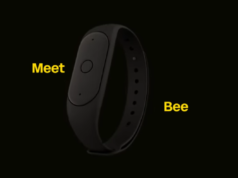
- Register
- Login
25°C
- Article
- . (0)
- Related content
Major chip players, including Intel, Nvidia, Qualcomm and AMD, have all stepped up their efforts to develop related artificial intelligence (AI) platforms, making the AI market a fierce battlefield in 2017.
Intel, which already quit the smartphone market, has begun re-organizing its businesses and integrated all its AI-related businesses under the newly established AI Products Group and AI laboratories. The company has also been acquiring companies and forming strategic alliances with partners to strengthen its AI platforms for applications including drone, autonomous driving, medical care and smart factory.
Intel has recently launched its Nervana platform, designed specifically for AI application and the solutions that are based on the platform use products including Intel’s Xeon and Xeon Phi processors and adopt technology such as FPGA and from Intel’s acquired Nervana
In the first half of 2017 Intel will test its new Lake Crest chip that has been optimized for neural network. Intel also has a chip codenamed Knights Crest, which combines Intel’s Xeon processor with Nervana’s technology.
Intel’s Saffron platform will provide transparent analysis on heterogeneous material using a memory-based reasoning method, while the company has also been offering smart APIs, expanding its distributed computing processor series, releasing RealSense camera and Movidius VPU to assist the development of related technologies.
Intel has recently acquired Mobileye for US$15.3 billion to push its effort in the AI market, while its autonomous driving car fleet is expected to hit the road some time in 2017. Intel also acquired a 15% stake in map content developer HERE to ensure the autonomous driving cars have the latest map information.
Unlike other chipmakers, Nvidia is using its GPU technology to push AI applications. The company launched Tesla P100 chip and Tesla P4P40 chip for image, text and sound recognition. Nvidia has also cooperated with electric car vendor Tesla and developed its car-use AI platform Xavier. Nvidia also has partnership with Audi to release autonomous driving cars.
For the home-use Internet of Things (IoT) area, Nvidia has Shield+Spot platform, while its Jetson TX2 can be used in end devices as well as smart factory robots, enterprise drones and smart cameras in cities.
Nvidia has recently partnered with Microsoft to develop an AI cloud computing platform accelerated by GPUs. Nvidia’s Telsa has also been adopted by China-based Tencent’s cloud computing platform. Nvidia is planning to host GPU Technology Conference (GTC) 2017 in May and is expected to unveil more updates on its AI plans.
Qualcomm has been aggressively trying to expand in the AI market. Following its US$47 billion acquisition of the largest car-use chip maker NXP worldwide, Nvidia also recently formed collaboration with map content provider TomTom.
AMD CEO Lisa Su recently noted that the company will not be absent from the AI competition and the market is rather important to AMD. In addition to processor and GPU technologies, FPGA and ASIC are also expected to become major technologies. AMD has recently launched Radeon Instinct graphics card, specifically for AI and machine learning purposes.
AMD is the only company that has both GPU and x86 processor technologies. In addition to capability of satisfying datacenter’s variety of demand, the company is also able to push smart machine’s development as the company has been developing the efficient connection between the GPU and the CPU to meet AI’s technological demand.
-
Clevo sees weak profits in 2016, but expects strong performance in 2017
IT + CE | 4h 28min ago
-
Revenues from flexible AMOLED displays on pace to exceed rigid AMOLED panels in 3Q17, says IHS
Displays | 4h 30min ago
-
New Wafer Works China plant to come online in 2018, says report
Bits + chips – Newswatch | 4h 33min ago
-
LeEco may be unable to acquire Vizio due to strict foreign exchange policies
Before Going to Press | 4h 47min ago
-
Getac Technology nets NT$3.68 per share for 2016
Before Going to Press | 4h 49min ago
-
Simplo to cut capital by 40%
Before Going to Press | 4h 50min ago
-
Asustek ZenFone 4 may not come with Snapdragon 835
Before Going to Press | 4h 50min ago
-
ECS reports losses for 2016
Before Going to Press | 4h 59min ago
-
ESD solution provider Amazing Microelectronic sees earnings up 70% in 2016
Before Going to Press | 5h ago
-
Quanta suffers revenue drop, but increased profits in 2016
Before Going to Press | 5h 9min ago
-
Chunghwa Telecom launches smart FunPark Watch for children
Before Going to Press | 5h 10min ago
-
BLU maker Coretronic to hand out cash dividend of NT$3.5 for 2016
Before Going to Press | 5h 18min ago
-
Flytech Technology to deal out 2016 dividend of NT$5
Before Going to Press | 6h 26min ago
-
Samsung Galaxy S8 to be available starting mid-April
Before Going to Press | 6h 27min ago
-
Gigastorage to not hand out 2016 dividend
Before Going to Press | 6h 29min ago
-
Global Lighting Technologies nets NT$6.05 per share for 2016
Before Going to Press | 6h 30min ago



- Wireless broadband developments in Southeast Asia markets
As of 2013, the 10 ASEAN nations had a total of over 700 million mobile subscriptions, with the CAGR from 2003-2013 reaching 24%. This Digitimes Research Special Report analyzes the various mobile broadband markets in ASEAN and looks at the respective trends in 4G LTE development for those markets.
- 2015 global tablet demand forecast
This Digitimes Research Special Report provides a 2015 forecast for the global tablet market and analyzes the strategies of key market players such as Google, Apple, Intel, and Microsoft.
- 2015 China smartphone panel trend forecast
This Digitimes Research Special Report analyzes the strategies of key China-based major panel makers BOE, Tianma and IVO for attacking the…









